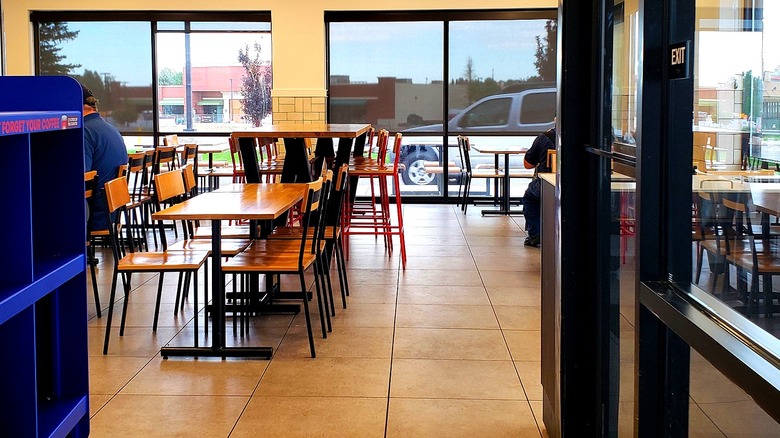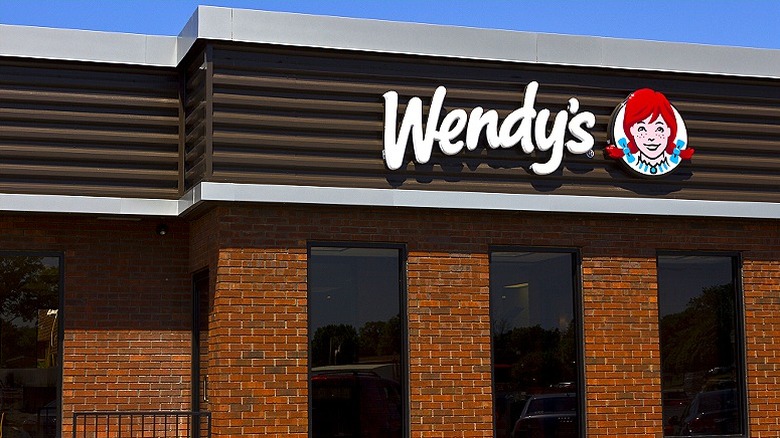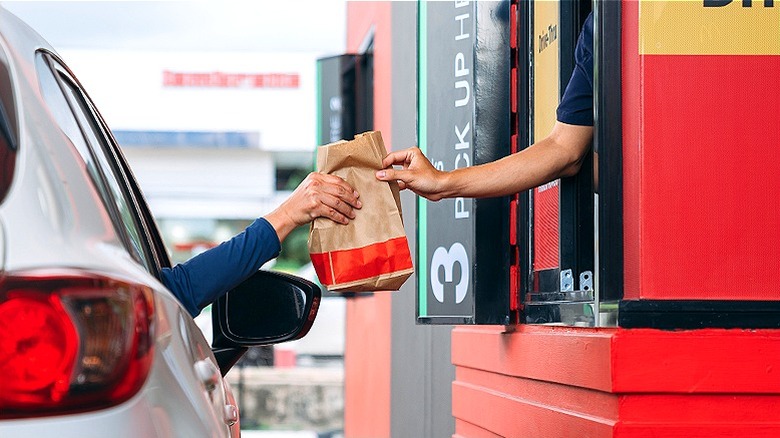Major Fast-Food Chain To Shut Down Over 100 US Locations
As if dealing with food recalls and increased prices wasn't bad enough, fast-food lovers are now also facing potential shutdowns at some of their favorite fast-food restaurants. Restaurants, in particular, have faced increased operating difficulties in the post-pandemic economy but they're not alone. Retailers like Best Buy, Macy's, and Big Lots have closed hundreds of stores across the country in 2024, making it hard to keep up with what stores are actually staying open.
A major contributing culprit to the rash of store and restaurant closures in 2024 is inflation. As costs (everything from ingredients to logistical transportation to the utilities at restaurant locations) have gone up, many businesses that might have been barely surviving before have been pushed over the financial edge. Also complicating costs for many restaurants is a growing increase in labor costs. According to the National Restaurant Association, labor costs have gone up 31% since 2020, which has further complicated the financial margins of many restaurants and chains.
To add even more to the mix, the average 27.2% increase in menu prices (according to the Bureau of Labor Statistics) since 2020 has pushed more and more customers away from their favorite restaurants and food options. All of this has combined to make it a rough year for those in the food industry, with fast-food restaurants increasingly feeling the strain of changing consumer behaviors. This brings us to the latest casualty of the fast world, the announcement that Wendy's will be closing stores, and soon.
Wendy's closing underperforming locations
In an earnings call on October 31, Wendy's CEO Kirk Tanner confirmed that the restaurant chain would be closing 140 store locations in the coming months. Tanner also shared that there are no specific geographic areas that would experience more closures than others. Instead the company intends to close underperforming stores that had, according to its own internal review, significantly below-average financial performance. Tanner didn't confirm which specific store locations have been identified for closing. It's also worth mentioning that Wendy's CFO, Gunther Plosch, previously announced (in May 2024) that the company would be closing around 100 stores by the end of year. By all accounts, the just-announced 140 stores will be in addition to those originally slated closures.
While it might seem like the company is struggling, or even potentially heading for bankruptcy like so many other restaurants have lately, it's important to realize that Wendy's is also building new, more technologically advanced, restaurants. In fact, the chain is currently building between 250 and 300 different locations that would allow the brand to embrace new updated design elements as well as incorporate pick-up windows that better serve the post-pandemic consumer market, which now regularly includes delivery services like UberEats, DoorDash, and GrubHub (we previously looked into whether services like UberOne perks were worth it). Plus, even with the announced closures, the number of Wendy's locations across the country still stands strong at over 6,000.
What's next for fast food?
As the fast-food market struggles in the wake of inflation and increased costs, many brands have increasingly turned to special promotions to offset lower sales and try to win back market share. For instance, McDonald's unveiled (and keeps extending) its $5 value meal in an effort to draw consumers back to its restaurants (McDonald's doesn't make as much money from these value meals as you might think). Meanwhile, Burger King unveiled an "The Addams Family" special menu in October, with themed food items in time for the Halloween season.
Similarly, Wendy's unveiled its "SpongeBob SquarePants"-themed meal in October, in celebration of the show's 25th anniversary. Per Wendy's October earnings call, the themed meal has been quite successful, even driving sales growth. However, even with these promotions consumer behaviors have changed. According to August 2024 Ipsos Consumer Tracker data, 34% of those surveyed reported eating dinner at a fast-food restaurant less than they did at the beginning of the year, while 36% reported the same for eating lunch at a fast-food restaurant.
Especially interesting was just how many lower-income Americans have been turning away from fast food in the face of rising prices. Forty-one percent of those with incomes under $50,000 a year reported having dinner at fast-food restaurants less than they did at the beginning of 2024. Without more significant (and long-term) value changes at fast-food restaurants, including Wendy's, customers will more than likely continue to steer clear of this dining option for the foreseeable future.


